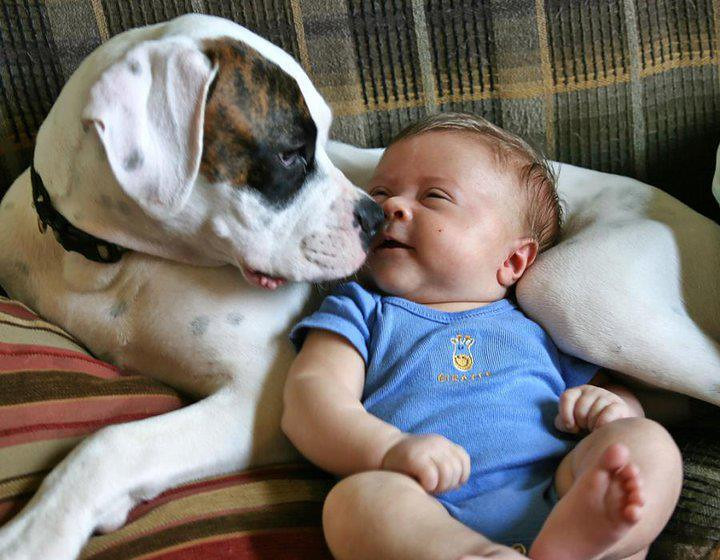The furry secret to staying slim, healthy and allergy free
The jury is in. (Again.) Pet ownership is good for your health.
In fact, there are a bunch of research-proven reasons for adults to own a pet. I’ll get to some of those in just a few moments. But first let’s take a closer look at a new study, published in the journal Microbiome, which focuses on kids.
Canadian researchers uncovered evidence that the companionship of a furry friend when you’re an infant, could help you stay healthy as you grow up.
According to the scientists from the University of Alberta, exposing kids to pets early in life can help them avoid allergies and obesity later.
Exposure to pets keeps kids slim and allergy free
When the team compared babies from homes with pets, to babies who aren’t regularly exposed to animals, they found the infants from the pet-owning homes had significantly higher levels of two important microbes that experts say lower your risk for developing allergies or obesity.
Babies from the pet-owning households had twice as many Ruminococcus and Oscillospira bacteria as the babies who didn’t cozy up to a pet regularly.
But in fact, scientists say your pet’s contribution to your health can start before you’re even born! Experts say when mom is exposed to pet dander during pregnancy it can have a good influence on her baby’s microbiome.
In a study conducted at Henry Ford Hospital in Detroit, babies born to mothers who had pets while they were pregnant had 33 percent lower levels of the IgE antibodies that are linked to asthma and allergies. Plus kids with multiple pets have an even better chance of avoiding allergies, according to research published in the journal JAMA.
And, according to Swedish researchers, kids raised in homes with dogs are 13 percent less likely to develop asthma by age six than kids in pet-free homes.
Pet owners are happier and healthier
But your furry friend’s contributions to your health don’t end in childhood. Spot’s unconditional love could help you live a happier, healthier and possibly even longer life.
If you’ve ever owned a pet you probably don’t need me to tell you they’re terrific stress relievers. But a study published in the journal Psychosomatic Medicine, has confirmed what you and I already know, pets are good for us.
Researchers from the State University of New York say it’s not just your imagination. Being able to pet Snowflake at the end of a rough day—or press your face into Fido’s fur after spending hours stuck in traffic—can literally give you a lower resting heart rate and better blood pressure than folks who don’t have a four-footed friend waiting for them at home.
Scientists at the University of California confirm that pet owners faced with stress go to see the doctor far less often than folks living in pet-free homes. And another study found interacting with pets could end up with you needing less meds and paying less for healthcare.
Which really isn’t all that surprising when you learn that research has also shown pet owners tend to feel less anxiety, are more active (after all someone has got to play with the kitty or walk the pooch) and experience less loneliness than folks without a fluffy or feathered companion.
Your pet could help you live longer
But perhaps the biggest gift your furry best friend can give you is a longer life. Feeling lonely or depressed is more common as we age. And studies show being socially isolated effects our health and can shorten our lifespans.
Experts say having a pet could be the cure. Pets automatically increase your amount of social contact, making you interact more with other folks in your community, which is critical as you get older. And simply being connected more to neighbors and friends could literally help you live longer.
So if you’ve been on the fence about bringing a fur baby into your life, hop off and head for the nearest shelter. Owning a pet is good for your health. And if you happen to be in your golden years be sure to ask about any special programs for seniors. Many shelters work with charities such as the Pets for the Elderly Program, which can help with adoption fees, and spaying and neutering costs.









Recent Comments